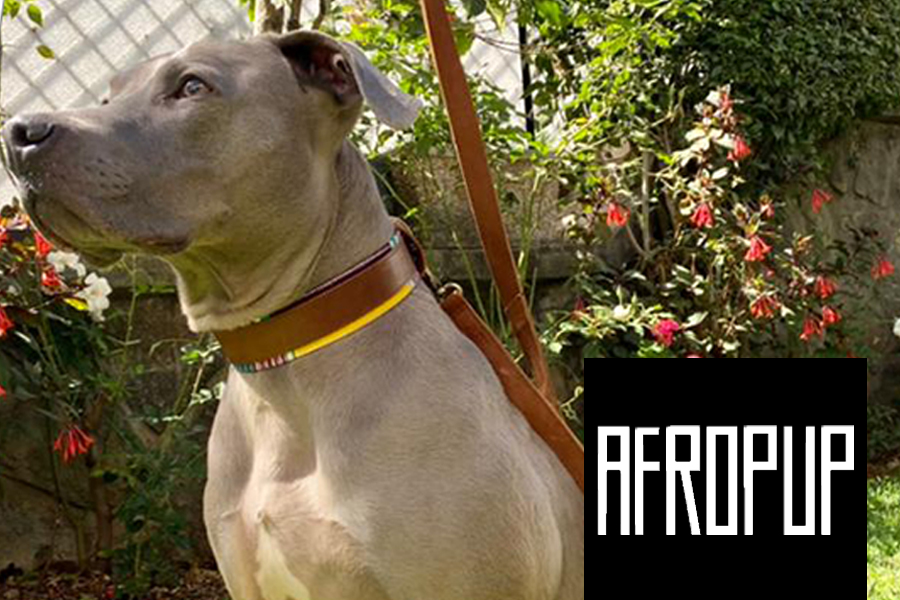A pet brand on a mission
Through inclusive, afro-inspired pet products, Rhett James MBA/MCP ‘21 and Leyou Tameru are driving social change on both sides of the Atlantic.
Avery Watkins, MIT Sandbox Innovation Fund ProgramTwo years ago, as Rhett James was starting a dual-degree MBA/master's degree in city planning, a chance meeting with Leyou Tameru, a legal consultant based in Ethiopia, would take him down an unexpected path. An architect by trade, James had an eye for design, but never anticipated that he would go into consumer goods. When casually discussing small business ideas with Tameru, the pair landed on a concept that stuck with them: an inclusive, social impact pet brand inspired by African and Black culture.
In doing initial research, Tameru discovered that, while the market for pet products was huge, with Americans spending more on pets annually than the GDP of 46 African countries, there were few pet products targeting communities of color. James, who was looking to adopt a dog himself, soon learned of low rates of pet ownership in communities of color. Together, they wondered if afro-inspired products could encourage more diversity in pet ownership.
Over the next year, they developed their idea over the phone, but found themselves asking, ‘Can we actually do this?’ As James describes, “It can feel as though entrepreneurship is limited to those who want to take over the world with the next Facebook. Doing something creative and fun can seem less feasible.”
But, as the pandemic hit and disproportionately affected communities of color, the two felt more compelled than ever to pursue their idea. With pet adoption rates soaring and dogs providing crucial emotional support amidst social isolation, they saw inclusive pet ownership as a critical way to support hard-hit communities of color.
They took the leap into entrepreneurship by applying to the MIT Sandbox Innovation Fund Program for seed funding and mentorship. “When Sandbox said yes,” James says, “It was huge for us. It made us feel confident that our idea had some validity.” With encouragement and support from Sandbox mentors, the pair developed their first line of afro-inspired collars and leashes, and established manufacturing in Ethiopia.
Despite the inherent challenges of manufacturing their products in Africa, the pair felt that there was immense value in their venture’s transcontinental structure. By partnering with local manufacturers who primarily employ Ethiopian women, they are creating jobs that empower the community and promote sustainable economic development, a central part of their mission as a social impact enterprise. As Tameru describes, by creating products “from Africa, for the world,” she hopes that they can “give a different image of the African continent to the U.S., an image that highlights African manufacturing, rather than Africans receiving aid.''
Overcoming the challenges of building a transcontinental company during a global pandemic — limited international travel, different time zones, cultural differences, and Ethiopia's technological limitations — they were able to officially launch Afropup in late 2020.
With their products now on the market, James and Tameru have expanded their vision, moving beyond just selling products to creating and fostering a community of “Afropuppers” who can share resources and advice as they experience pet ownership. Through pop-up meetings, aptly named “pup-ups,” they hope to create a space for people to come together and feel both represented and supported as pet owners.
Reflecting on how their concept has come to life over the past year, James and Tameru express gratitude for how much they have learned in launching their venture. “MIT is really all about learning by doing,” he says. “Afropup has offered me the opportunity to take all of the things I had learned at MIT and implement them in the real world.” Moreover, the experience has shown them how impactful entrepreneurship can be. “If we can do this,” Tameru describes, “with limited finances during a global pandemic, imagine what else so many of us can do.”
Originally posted via MIT Sandbox, August 2021
